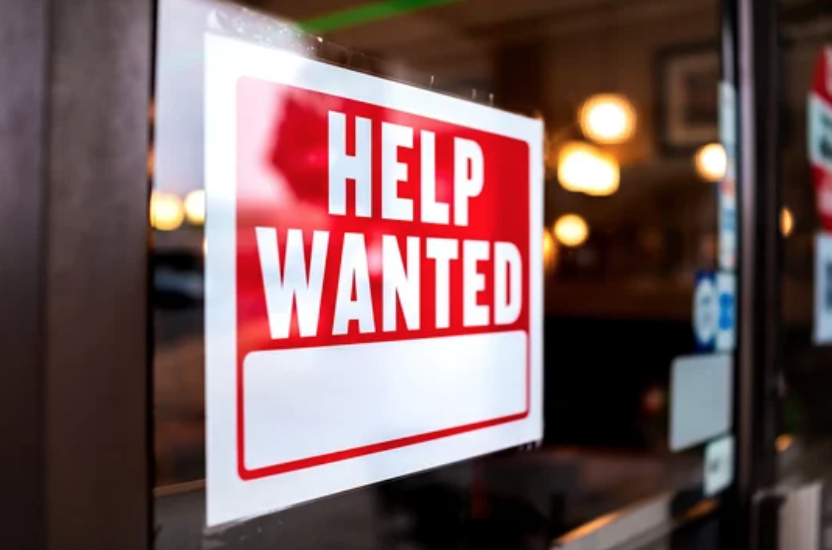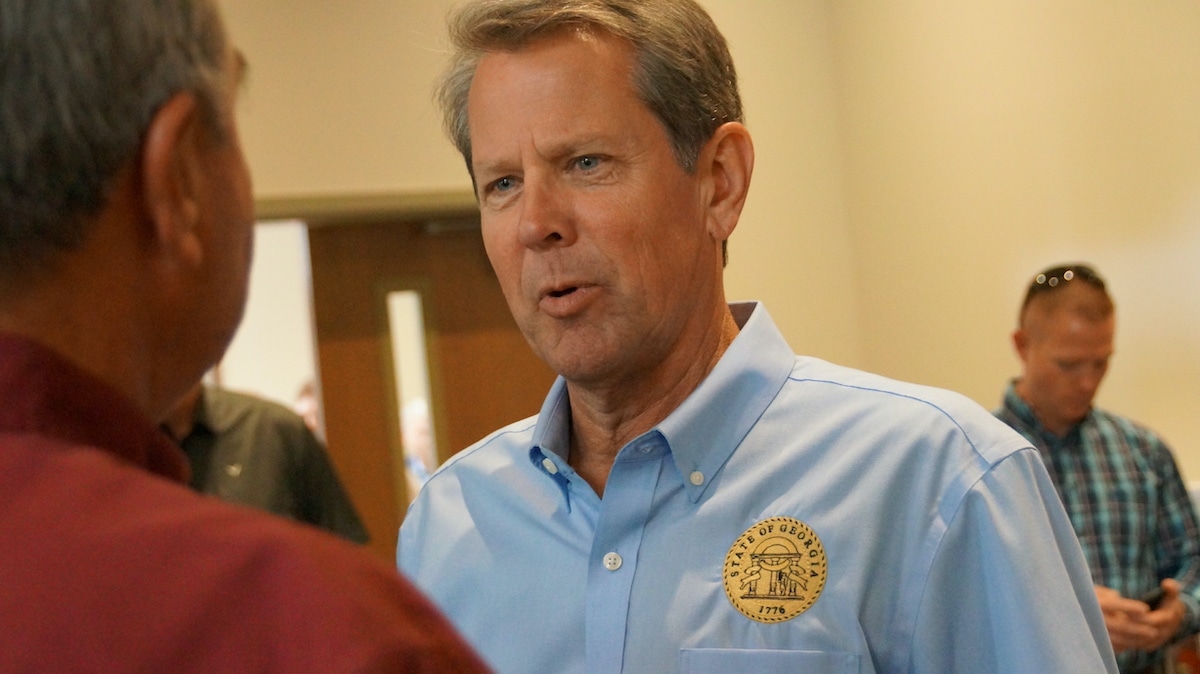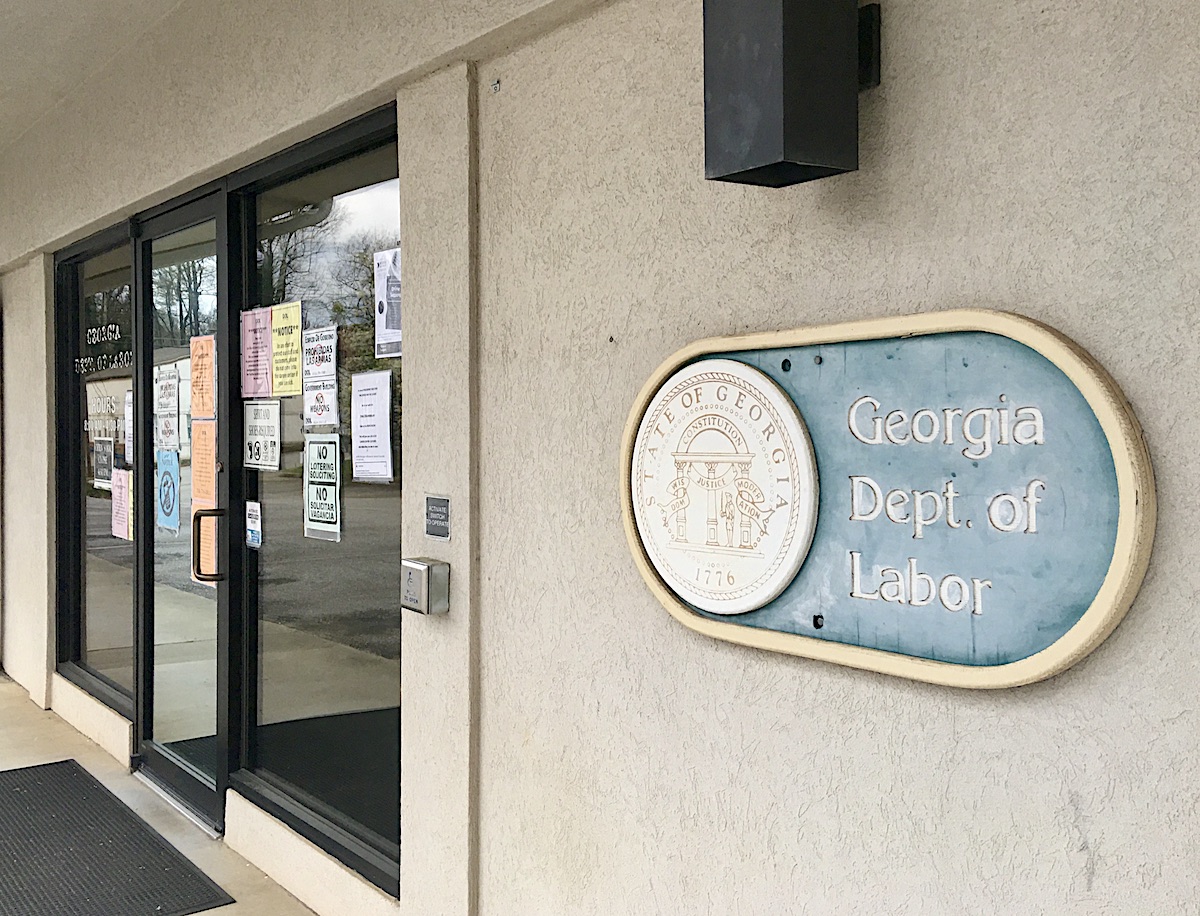
(GA Recorder) — Georgia will pull out of several federal programs boosting benefits for the unemployed this June in an attempt to drive more Georgians back to work, Gov. Brian Kemp and Labor Commissioner Mark Butler announced Thursday.
“Every small business owner and the workers that are working currently, they need more people,” Kemp said during a Thursday interview on Fox News. “It is hurting our productivity not only in Georgia but across the country.”

Effective June 26, Georgia will no longer participate in a federal unemployment program that provides an additional $300 payment to unemployment recipients or another federal program that provides assistance to those gig workers and independent contractors who would not normally qualify for unemployment. The programs were set to expire in September.
The state will also end its participation in federal programs extending benefits beyond their normal termination dates or providing an additional $100 to certain people with mixed earnings.
The Georgia Department of Labor has provided assistance to workers since the pandemic began, Butler said, but now the state’s employers need assistance getting back to work.
“(The Georgia Department of Labor) has dispersed almost $22 billion in the past fourteen months to support families in this crisis, paying mortgages, electric bills, and grocery tabs when Georgians were in greatest need,” he said. “It is critical for us to support our economy and local businesses by providing solutions to the roadblocks many Georgians have faced when returning to work.”
Once the state pulls out of the programs, Georgians can still apply for regular state unemployment with a maximum weekly payment of $365, down from $665, including the federal payments.

If the plan goes forward, Georgia will stop participating in the program in mid-to-late June, Kemp said. Other states with Republican leadership, including Mississippi, Missouri, Iowa, Montana, North Dakota, and South Carolina, have also announced plans to terminate the additional federal benefits.
The shift comes amid a national debate on whether government unemployment programs designed to help jobless Americans during the COVID-19 pandemic are instead incentivizing some people not to work.
Last week, the U.S. Bureau of Labor Statistics released a disappointing unemployment update showing a slight uptick in the national unemployment rate, from 6.0% to 6.1%.
In the week ending May 1, more than 121,000 Georgians received unemployment payments, according to the U.S. Department of Labor. That represents a decrease of more than 18,000 people from the week before, but it is still much higher than the approximately 24,000 Georgians receiving benefits before the pandemic.
The leisure and hospitality industry, a category that includes entertainment and food service, was among the first to feel the effects last year when a stay-at-home order kept customers away, and the industry is also having the most difficulty recovering as life slowly returns to normal.
“Prior to the pandemic, there were 508,000 jobs in leisure and hospitality in the state,” said Georgia Department of Labor spokeswoman Kersha Cartwright. “As of March 2021, there were 429,000 jobs, a difference of 79,000 jobs between the two points in time. This difference is more than three times that of any other industry.”
 In a poll conducted by small business social network Alignable, 61% of Georgia business owners said they are having trouble hiring, compared to a national average of 50%.
In a poll conducted by small business social network Alignable, 61% of Georgia business owners said they are having trouble hiring, compared to a national average of 50%.
Of those, 67% blame federal programs, with 38% blaming the $300 payments and 29% pointing to the stimulus check. Nationally, 54% of businesses said they blame one of those programs.
On Monday, President Joe Biden announced his administration will work with states to reinstate work search requirements for unemployment recipients.
“We’re going to make it clear that anyone who is collecting unemployment who is offered a suitable job must take the job or lose their unemployment benefits,” Biden said.
Kemp’s move was a hit with Georgia conservatives, skeptical of the $1,400 stimulus payments included in the American Rescue Plan in March.
“As our federal government approaches $29 trillion in debt, President Biden and the federal government have turned their back on our local business owners desperately facing labor shortages by continuing to hand out taxpayers dollars in the form of needless unemployment benefits,” said Georgia Senate President Pro Tempore Butch Miller, a Republican from Gainesville.
Not everyone agrees the payments are to blame for the difficulty business owners face.
Unemployment claims in the food and accommodation services industry dropped 85% from April 2020 to April 2021, said Ray Khalfani, a research associate at the Georgia Budget and Policy Institute.
“Although some jobs are returning, that doesn’t mean everyone who wants to work can,” he said.
Some workers may have decided to prioritize their health over returning to low paying jobs, Khalfani said. Others must factor in the costs of childcare or of accepting a job in a different field with lower pay and benefits.

Georgia’s pullout of the federal unemployment programs would disproportionately harm women, who often face a difficult choice between caring for children and working outside of the home, and people of color, who studies show are often overlooked for jobs they are qualified for, Khalfani said.
Elizabeth Knight of Savannah has been furloughed since November from her job helping people with disabilities find work. She said unemployment has helped give her some breathing room as she manages her son’s schedule. In February, Savannah-Chatham County Schools students returned to classes with an alternating schedule of in-person and virtual classes.
“I know there’s a lot of jobs out there for warehousing, especially in my community, warehousing, and restaurants, but that’s not my industry,” she said. “My industry is sort of kind of still not there. So, yeah, I can go out and apply for different jobs, but what am I going to do with my son? Because he’s homeschooling, and then two days out of the week, he’s going to the campus, which lets out at 1 o’clock.”
State Rep. William Boddie, an East Point Democrat who plans to challenge Butler in 2022, called on Butler to balance pressure to return to work with expanded job training opportunities.
“The labor commissioner should be more balanced, where he’s focused on businesses but also focused on and listens to the needs of Georgia workers as well, to try to provide them with more livable wages and retraining opportunities to get to those livable and high-wage paying jobs,” he said.






